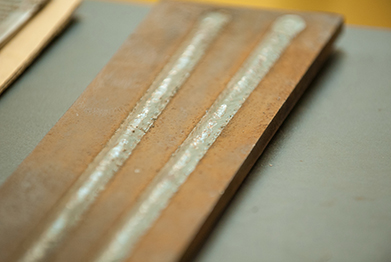Doctoral studies
Click HERE to see more about doctoral studies.
Click HERE to see more about doctoral studies.

Industrial Engineering is the branch of engineering that deals with the optimization of complex processes, systems or organizations. In industrial engineering, optimization consists in eliminating the waste of time, money, materials, labour hours, machine time, energy, as well as other resources that do not generate value.
The first industrial revolution (late 18th century and early 19th century) mechanized steam power production. The second (late 19th century and first decade of the 20th century) used electricity to move to mass production through the use of assembly lines, and the third industrial revolution (1969-1970) was based on the accelerated development of nuclear energy, electronics (with transistor and microprocessor), telecommunications and computers. This latest stage allowed the spread of automation and the implementation of the first robots. Each of these stages has changed the landscape of the labour market. The second decade of the 21st century allowed the transition to the fourth stage of the industrial revolution, which introduced the concept of Industry 4.0, characterized by digitalization. Industry 4.0 means a self-organized production, in which operators, machine tools, installations, logistics and the product communicate and cooperate with each other on a permanent basis. The chain will have to include all the phases of a product, starting from the idea stage to its decommissioning (idea, design, assimilation, calculation, logistics, production, after-sales services and recycling). Concepts such as internet of things (IoT), virtual reality (VR), artificial intelligence (AR) introduced during the third stage of the industrial revolution change and will change the way of life and work.
The triggering forces in the fourth industrial revolution are the increase of processing and storage power, the development of sensors, robots and design-simulation applications, the emergence of the industrial Internet, the evolution of 3D printers, as well as the demand for customized products. Frequent use of 3D design and simulation programmes has significantly reduced the amount of time new products are available to beneficiaries.
The digitization of the industry offers wide possibilities for research, related to the optimization of manufacturing processes and equipment, improving productivity and increasing the quality and competitiveness of products. Strong emphasis is placed on the development and refinement of additive processing that will gradually replace, where possible, subtractive ones.

Materials Engineering is an interdisciplinary field (also known as Materials Science or Materials Science and Engineering), which deals with the development and realization of new materials, usually in the category of solids. The origins of the field date back to the Enlightenment, when scholars of the time started using analytical thinking in mathematics, physics, chemistry and engineering to understand the phenomena of metallurgy and mineralogy. Interdisciplinarity is still present today, in the attempt to combine knowledge from metallurgy, ceramics, physics and chemistry to develop new materials. The key change in Materials Engineering over the past two decades resides in the active use of computer simulation methods to find new chemical compounds, anticipate possible properties, and, as a result, design new materials. The small number of chemical elements and implicitly of available materials, as well as their limits, impose on the researchers the most accurate, complete and complex understanding of the processing-structure-properties link. The internal structure of the materials is the key to the development of products with improved functional properties and performance during operation and extended service life.
The 21st century has opened up new challenges and opportunities for researchers involved in Materials Engineering. The featuring of the new materials is facilitated by the use of recently tested or developed test equipment. Some of the directions that can be approached in the field are nano materials, surface engineering, biomaterials, composite materials, metal foams, materials for 3D printing.